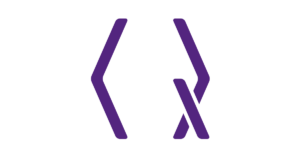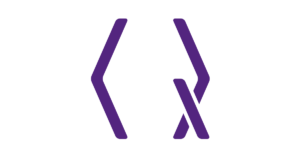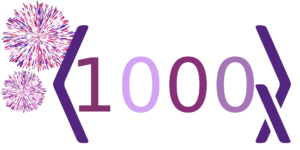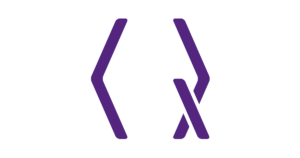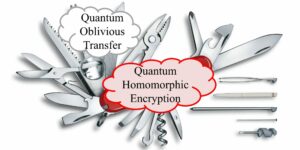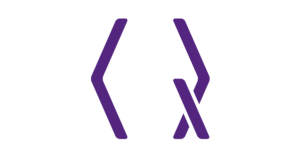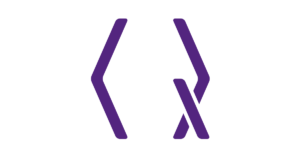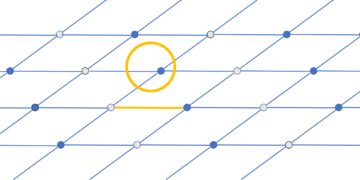1Theoretical Division, Los Alamos National Laboratory, Los Alamos, NM 87545, USA
2Theoretische Chemie, Physikalisch-Chemisches Institut, Universität Heidelberg, INF 229, D-69120 Heidelberg, Germany
3Instituto de Física Teórica, UAM/CSIC, Universidad Autónoma de Madrid, Madrid, Spain
4Institute of Theoretical Physics, Jagiellonian University, Krakow, Poland.
5Quantum Science Center, Oak Ridge, TN 37931, USA
6Information Sciences, Los Alamos National Laboratory, Los Alamos, NM 87545, USA
Find this paper interesting or want to discuss? Scite or leave a comment on SciRate.
Abstract
Error mitigation is an essential component of achieving a practical quantum advantage in the near term, and a number of different approaches have been proposed. In this work, we recognize that many state-of-the-art error mitigation methods share a common feature: they are data-driven, employing classical data obtained from runs of different quantum circuits. For example, Zero-noise extrapolation (ZNE) uses variable noise data and Clifford-data regression (CDR) uses data from near-Clifford circuits. We show that Virtual Distillation (VD) can be viewed in a similar manner by considering classical data produced from different numbers of state preparations. Observing this fact allows us to unify these three methods under a general data-driven error mitigation framework that we call UNIfied Technique for Error mitigation with Data (UNITED). In certain situations, we find that our UNITED method can outperform the individual methods (i.e., the whole is better than the individual parts). Specifically, we employ a realistic noise model obtained from a trapped ion quantum computer to benchmark UNITED, as well as other state-of-the-art methods, in mitigating observables produced from random quantum circuits and the Quantum Alternating Operator Ansatz (QAOA) applied to Max-Cut problems with various numbers of qubits, circuit depths and total numbers of shots. We find that the performance of different techniques depends strongly on shot budgets, with more powerful methods requiring more shots for optimal performance. For our largest considered shot budget ($10^{10}$), we find that UNITED gives the most accurate mitigation. Hence, our work represents a benchmarking of current error mitigation methods and provides a guide for the regimes when certain methods are most useful.
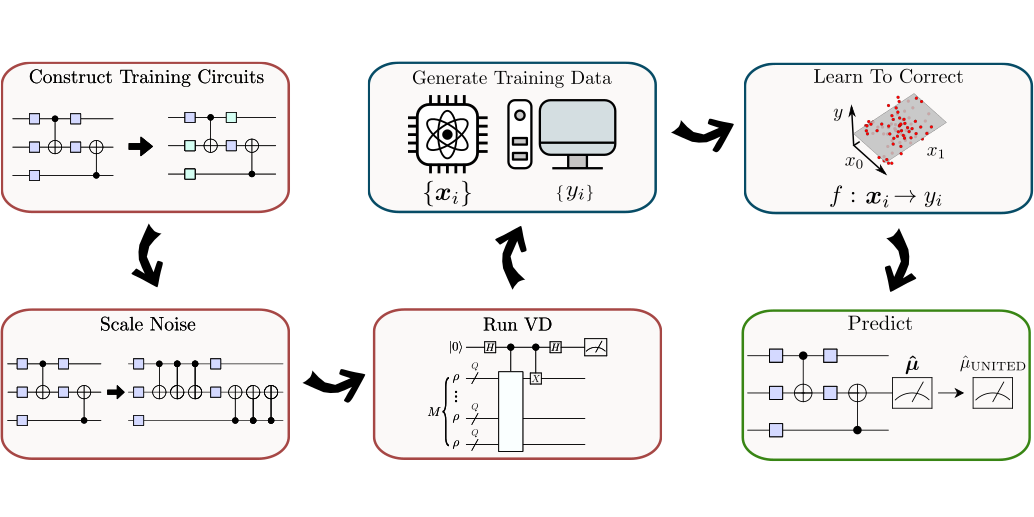
Featured image: Schematic summary of UNIfied Technique for Error mitigation with Data.
Popular summary
► BibTeX data
► References
[1] Xavi Bonet-Monroig, Ramiro Sagastizabal, M Singh, and TE O'Brien. Low-cost error mitigation by symmetry verification. Physical Review A, 98 (6): 062339, 2018. https://doi.org/10.1103/PhysRevA.98.062339.
https://doi.org/10.1103/PhysRevA.98.062339
[2] Sergey Bravyi, Sarah Sheldon, Abhinav Kandala, David C Mckay, and Jay M Gambetta. Mitigating measurement errors in multiqubit experiments. Physical Review A, 103 (4): 042605, 2021. https://doi.org/10.1103/PhysRevA.103.042605.
https://doi.org/10.1103/PhysRevA.103.042605
[3] Zhenyu Cai. Multi-exponential error extrapolation and combining error mitigation techniques for NISQ applications. npj Quantum Information, 7 (1): 1–12, 2021a. https://doi.org/10.1038/s41534-021-00404-3.
https://doi.org/10.1038/s41534-021-00404-3
[4] Zhenyu Cai. Quantum error mitigation using symmetry expansion. Quantum, 5: 548, 2021b. https://doi.org/10.22331/q-2021-09-21-548.
https://doi.org/10.22331/q-2021-09-21-548
[5] Zhenyu Cai. Resource-efficient purification-based quantum error mitigation. arXiv preprint arXiv:2107.07279, 2021c. URL https://arxiv.org/abs/2107.07279.
arXiv:2107.07279
[6] M. Cerezo, Andrew Arrasmith, Ryan Babbush, Simon C Benjamin, Suguru Endo, Keisuke Fujii, Jarrod R McClean, Kosuke Mitarai, Xiao Yuan, Lukasz Cincio, and Patrick J. Coles. Variational quantum algorithms. Nature Reviews Physics, 3 (1): 625–644, 2021. https://doi.org/10.1038/s42254-021-00348-9.
https://doi.org/10.1038/s42254-021-00348-9
[7] Lukasz Cincio, Yiğit Subaşı, Andrew T Sornborger, and Patrick J Coles. Learning the quantum algorithm for state overlap. New Journal of Physics, 20 (11): 113022, nov 2018. https://doi.org/10.1088/1367-2630/aae94a.
https://doi.org/10.1088/1367-2630/aae94a
[8] Lukasz Cincio, Kenneth Rudinger, Mohan Sarovar, and Patrick J. Coles. Machine learning of noise-resilient quantum circuits. PRX Quantum, 2: 010324, Feb 2021. https://doi.org/10.1103/PRXQuantum.2.010324.
https://doi.org/10.1103/PRXQuantum.2.010324
[9] Piotr Czarnik, Andrew Arrasmith, Lukasz Cincio, and Patrick J Coles. Qubit-efficient exponential suppression of errors. arXiv preprint arXiv:2102.06056, 2021a. URL https://arxiv.org/abs/2102.06056.
arXiv:2102.06056
[10] Piotr Czarnik, Andrew Arrasmith, Patrick J. Coles, and Lukasz Cincio. Error mitigation with Clifford quantum-circuit data. Quantum, 5: 592, November 2021b. ISSN 2521-327X. https://doi.org/10.22331/q-2021-11-26-592.
https://doi.org/10.22331/q-2021-11-26-592
[11] Piotr Czarnik, Michael McKerns, Andrew T Sornborger, and Lukasz Cincio. Improving the efficiency of learning-based error mitigation. arXiv preprint arXiv:2204.07109, 2022. URL https://arxiv.org/abs/2204.07109.
arXiv:2204.07109
[12] Eugene F Dumitrescu, Alex J McCaskey, Gaute Hagen, Gustav R Jansen, Titus D Morris, T Papenbrock, Raphael C Pooser, David Jarvis Dean, and Pavel Lougovski. Cloud quantum computing of an atomic nucleus. Phys. Rev. Lett., 120 (21): 210501, 2018. https://doi.org/10.1103/PhysRevLett.120.210501.
https://doi.org/10.1103/PhysRevLett.120.210501
[13] Suguru Endo, Simon C Benjamin, and Ying Li. Practical quantum error mitigation for near-future applications. Physical Review X, 8 (3): 031027, 2018. https://doi.org/10.1103/PhysRevX.8.031027.
https://doi.org/10.1103/PhysRevX.8.031027
[14] Suguru Endo, Zhenyu Cai, Simon C Benjamin, and Xiao Yuan. Hybrid quantum-classical algorithms and quantum error mitigation. Journal of the Physical Society of Japan, 90 (3): 032001, 2021. https://doi.org/10.7566/JPSJ.90.032001.
https://doi.org/10.7566/JPSJ.90.032001
[15] P Erdös and A Rényi. On random graphs i. Publ. math. debrecen, 6 (290-297): 18, 1959. URL http://snap.stanford.edu/class/cs224w-readings/erdos59random.pdf.
http://snap.stanford.edu/class/cs224w-readings/erdos59random.pdf
[16] Edward Farhi, Jeffrey Goldstone, and Sam Gutmann. A quantum approximate optimization algorithm. arXiv preprint arXiv:1411.4028, 2014. URL https://arxiv.org/abs/1411.4028.
arXiv:1411.4028
[17] Tudor Giurgica-Tiron, Yousef Hindy, Ryan LaRose, Andrea Mari, and William J Zeng. Digital zero noise extrapolation for quantum error mitigation. 2020 IEEE International Conference on Quantum Computing and Engineering (QCE), pages 306–316, 2020. https://doi.org/10.1109/QCE49297.2020.00045.
https://doi.org/10.1109/QCE49297.2020.00045
[18] Daniel Gottesman. The heisenberg representation of quantum computers, talk at. In International Conference on Group Theoretic Methods in Physics. Citeseer, 1998. URL http://citeseerx.ist.psu.edu/viewdoc/summary?doi=10.1.1.252.9446.
http://citeseerx.ist.psu.edu/viewdoc/summary?doi=10.1.1.252.9446
[19] Stuart Hadfield, Zhihui Wang, Bryan O'Gorman, Eleanor G Rieffel, Davide Venturelli, and Rupak Biswas. From the quantum approximate optimization algorithm to a quantum alternating operator ansatz. Algorithms, 12 (2): 34, 2019. https://doi.org/10.3390/a12020034.
https://doi.org/10.3390/a12020034
[20] Kathleen E Hamilton, Tyler Kharazi, Titus Morris, Alexander J McCaskey, Ryan S Bennink, and Raphael C Pooser. Scalable quantum processor noise characterization. In 2020 IEEE International Conference on Quantum Computing and Engineering (QCE), pages 430–440. IEEE, 2020. https://doi.org/10.1109/QCE49297.2020.00060.
https://doi.org/10.1109/QCE49297.2020.00060
[21] Andre He, Benjamin Nachman, Wibe A. de Jong, and Christian W. Bauer. Zero-noise extrapolation for quantum-gate error mitigation with identity insertions. Physical Review A, 102: 012426, Jul 2020. https://doi.org/10.1103/PhysRevA.102.012426.
https://doi.org/10.1103/PhysRevA.102.012426
[22] William J Huggins, Sam McArdle, Thomas E O’Brien, Joonho Lee, Nicholas C Rubin, Sergio Boixo, K Birgitta Whaley, Ryan Babbush, and Jarrod R McClean. Virtual distillation for quantum error mitigation. Physical Review X, 11 (4): 041036, 2021. https://doi.org/10.1103/PhysRevX.11.041036.
https://doi.org/10.1103/PhysRevX.11.041036
[23] Mingxia Huo and Ying Li. Dual-state purification for practical quantum error mitigation. Physical Review A, 105 (2): 022427, 2022. https://doi.org/10.1103/PhysRevA.105.022427.
https://doi.org/10.1103/PhysRevA.105.022427
[24] Abhinav Kandala, Kristan Temme, Antonio D. Córcoles, Antonio Mezzacapo, Jerry M. Chow, and Jay M. Gambetta. Error mitigation extends the computational reach of a noisy quantum processor. Nature, 567 (7749): 491–495, Mar 2019. ISSN 1476-4687. https://doi.org/10.1038/s41586-019-1040-7.
https://doi.org/10.1038/s41586-019-1040-7
[25] Sumeet Khatri, Ryan LaRose, Alexander Poremba, Lukasz Cincio, Andrew T Sornborger, and Patrick J Coles. Quantum-assisted quantum compiling. Quantum, 3: 140, 2019. https://doi.org/10.22331/q-2019-05-13-140.
https://doi.org/10.22331/q-2019-05-13-140
[26] Bálint Koczor. Exponential error suppression for near-term quantum devices. Physical Review X, 11 (3): 031057, 2021a. https://doi.org/10.1103/PhysRevX.11.031057.
https://doi.org/10.1103/PhysRevX.11.031057
[27] Bálint Koczor. The dominant eigenvector of a noisy quantum state. New Journal of Physics, 23 (12): 123047, 2021b. https://doi.org/10.1088/1367-2630/ac37ae.
https://doi.org/10.1088/1367-2630/ac37ae
[28] Angus Lowe, Max Hunter Gordon, Piotr Czarnik, Andrew Arrasmith, Patrick J. Coles, and Lukasz Cincio. Unified approach to data-driven quantum error mitigation. Phys. Rev. Research, 3: 033098, Jul 2021. https://doi.org/10.1103/PhysRevResearch.3.033098.
https://doi.org/10.1103/PhysRevResearch.3.033098
[29] Andrea Mari, Nathan Shammah, and William J Zeng. Extending quantum probabilistic error cancellation by noise scaling. Physical Review A, 104 (5): 052607, 2021. https://doi.org/10.1103/PhysRevA.104.052607.
https://doi.org/10.1103/PhysRevA.104.052607
[30] Dmitri Maslov. Basic circuit compilation techniques for an ion-trap quantum machine. New Journal of Physics, 19 (2): 023035, 2017. https://doi.org/10.1088/1367-2630/aa5e47.
https://doi.org/10.1088/1367-2630/aa5e47
[31] Sam McArdle, Xiao Yuan, and Simon Benjamin. Error-mitigated digital quantum simulation. Phys. Rev. Lett., 122: 180501, May 2019. https://doi.org/10.1103/PhysRevLett.122.180501.
https://doi.org/10.1103/PhysRevLett.122.180501
[32] Jarrod R McClean, Sergio Boixo, Vadim N Smelyanskiy, Ryan Babbush, and Hartmut Neven. Barren plateaus in quantum neural network training landscapes. Nature Communications, 9 (1): 1–6, 2018. https://doi.org/10.1038/s41467-018-07090-4.
https://doi.org/10.1038/s41467-018-07090-4
[33] Ashley Montanaro and Stasja Stanisic. Error mitigation by training with fermionic linear optics. arXiv preprint arXiv:2102.02120, 2021. URL https://arxiv.org/abs/2102.02120.
arXiv:2102.02120
[34] Prakash Murali, Jonathan M. Baker, Ali Javadi-Abhari, Frederic T. Chong, and Margaret Martonosi. Noise-adaptive compiler mappings for noisy intermediate-scale quantum computers. ASPLOS '19, page 1015–1029, New York, NY, USA, 2019. Association for Computing Machinery. ISBN 9781450362405. https://doi.org/10.1145/3297858.3304075.
https://doi.org/10.1145/3297858.3304075
[35] Thomas E. O'Brien, Stefano Polla, Nicholas C. Rubin, William J. Huggins, Sam McArdle, Sergio Boixo, Jarrod R. McClean, and Ryan Babbush. Error mitigation via verified phase estimation. PRX Quantum, 2: 020317, May 2021. https://doi.org/10.1103/PRXQuantum.2.020317.
https://doi.org/10.1103/PRXQuantum.2.020317
[36] Matthew Otten and Stephen K Gray. Recovering noise-free quantum observables. Physical Review A, 99 (1): 012338, 2019. https://doi.org/10.1103/PhysRevA.99.012338.
https://doi.org/10.1103/PhysRevA.99.012338
[37] Matthew Otten, Cristian L Cortes, and Stephen K Gray. Noise-resilient quantum dynamics using symmetry-preserving ansatzes. arXiv preprint arXiv:1910.06284, 2019. URL https://arxiv.org/abs/1910.06284.
arXiv:1910.06284
[38] Lewis Fry Richardson and J. Arthur Gaunt. VIII. the deferred approach to the limit. Philosophical Transactions of the Royal Society of London. Series A, Containing Papers of a Mathematical or Physical Character, 226 (636-646): 299–361, January 1927. https://doi.org/10.1098/rsta.1927.0008.
https://doi.org/10.1098/rsta.1927.0008
[39] Kunal Sharma, Sumeet Khatri, M. Cerezo, and Patrick J Coles. Noise resilience of variational quantum compiling. New Journal of Physics, 22 (4): 043006, 2020. https://doi.org/10.1088/1367-2630/ab784c.
https://doi.org/10.1088/1367-2630/ab784c
[40] John A. Smolin and David P. DiVincenzo. Five two-bit quantum gates are sufficient to implement the quantum fredkin gate. Physical Review A, 53: 2855–2856, 1996. https://doi.org/10.1103/PhysRevA.53.2855.
https://doi.org/10.1103/PhysRevA.53.2855
[41] Alejandro Sopena, Max Hunter Gordon, German Sierra, and Esperanza López. Simulating quench dynamics on a digital quantum computer with data-driven error mitigation. Quantum Science and Technology, 2021. https://doi.org/10.1088/2058-9565/ac0e7a.
https://doi.org/10.1088/2058-9565/ac0e7a
[42] Daniel Stilck França and Raul Garcia-Patron. Limitations of optimization algorithms on noisy quantum devices. Nature Physics, 17 (11): 1221–1227, 2021. https://doi.org/10.1038/s41567-021-01356-3.
https://doi.org/10.1038/s41567-021-01356-3
[43] Armands Strikis, Dayue Qin, Yanzhu Chen, Simon C Benjamin, and Ying Li. Learning-based quantum error mitigation. PRX Quantum, 2 (4): 040330, 2021. https://doi.org/10.1103/PRXQuantum.2.040330.
https://doi.org/10.1103/PRXQuantum.2.040330
[44] Ryuji Takagi. Optimal resource cost for error mitigation. Phys. Rev. Res., 3: 033178, Aug 2021. https://doi.org/10.1103/PhysRevResearch.3.033178.
https://doi.org/10.1103/PhysRevResearch.3.033178
[45] Kristan Temme, Sergey Bravyi, and Jay M. Gambetta. Error mitigation for short-depth quantum circuits. Phys. Rev. Lett., 119: 180509, Nov 2017. https://doi.org/10.1103/PhysRevLett.119.180509.
https://doi.org/10.1103/PhysRevLett.119.180509
[46] Colin J Trout, Muyuan Li, Mauricio Gutiérrez, Yukai Wu, Sheng-Tao Wang, Luming Duan, and Kenneth R Brown. Simulating the performance of a distance-3 surface code in a linear ion trap. New Journal of Physics, 20 (4): 043038, 2018. https://doi.org/10.1088/1367-2630/aab341.
https://doi.org/10.1088/1367-2630/aab341
[47] Miroslav Urbanek, Benjamin Nachman, Vincent R Pascuzzi, Andre He, Christian W Bauer, and Wibe A de Jong. Mitigating depolarizing noise on quantum computers with noise-estimation circuits. Phys. Rev. Lett., 127 (27): 270502, 2021. https://doi.org/10.1103/PhysRevLett.127.270502.
https://doi.org/10.1103/PhysRevLett.127.270502
[48] Joseph Vovrosh, Kiran E Khosla, Sean Greenaway, Christopher Self, Myungshik S Kim, and Johannes Knolle. Simple mitigation of global depolarizing errors in quantum simulations. Physical Review E, 104 (3): 035309, 2021. 10.1103/PhysRevE.104.035309.
https://doi.org/10.1103/PhysRevE.104.035309
[49] Kun Wang, Yu-Ao Chen, and Xin Wang. Mitigating quantum errors via truncated neumann series. arXiv preprint arXiv:2111.00691, 2021a. URL https://arxiv.org/abs/2111.00691.
arXiv:2111.00691
[50] Samson Wang, Enrico Fontana, M. Cerezo, Kunal Sharma, Akira Sone, Lukasz Cincio, and Patrick J Coles. Noise-induced barren plateaus in variational quantum algorithms. Nature Communications, 12 (1): 1–11, 2021b. https://doi.org/10.1038/s41467-021-27045-6.
https://doi.org/10.1038/s41467-021-27045-6
[51] Yifeng Xiong, Soon Xin Ng, and Lajos Hanzo. Quantum error mitigation relying on permutation filtering. IEEE Transactions on Communications, 70 (3): 1927–1942, 2022. https://doi.org/10.1109/TCOMM.2021.3132914.
https://doi.org/10.1109/TCOMM.2021.3132914
[52] Nobuyuki Yoshioka, Hideaki Hakoshima, Yuichiro Matsuzaki, Yuuki Tokunaga, Yasunari Suzuki, and Suguru Endo. Generalized quantum subspace expansion. Phys. Rev. Lett., 129: 020502, Jul 2022. https://doi.org/10.1103/PhysRevLett.129.020502.
https://doi.org/10.1103/PhysRevLett.129.020502
Cited by
[1] Ryuji Takagi, Hiroyasu Tajima, and Mile Gu, "Universal sampling lower bounds for quantum error mitigation", arXiv:2208.09178, (2022).
[2] C. Huerta Alderete, Alaina M. Green, Nhung H. Nguyen, Yingyue Zhu, Norbert M. Linke, and B. M. Rodríguez-Lara, "Para-particle oscillator simulations on a trapped ion quantum computer", arXiv:2207.02430, (2022).
[3] Samson Wang, Piotr Czarnik, Andrew Arrasmith, M. Cerezo, Lukasz Cincio, and Patrick J. Coles, "Can Error Mitigation Improve Trainability of Noisy Variational Quantum Algorithms?", arXiv:2109.01051, (2021).
[4] He-Liang Huang, Xiao-Yue Xu, Chu Guo, Guojing Tian, Shi-Jie Wei, Xiaoming Sun, Wan-Su Bao, and Gui-Lu Long, "Near-term quantum computing techniques: Variational quantum algorithms, error mitigation, circuit compilation, benchmarking and classical simulation", Science China Physics, Mechanics, and Astronomy 66 5, 250302 (2023).
[5] Alessio Calzona and Matteo Carrega, "Multi-mode architectures for noise-resilient superconducting qubits", Superconductor Science Technology 36 2, 023001 (2023).
[6] Abdullah Ash Saki, Amara Katabarwa, Salonik Resch, and George Umbrarescu, "Hypothesis Testing for Error Mitigation: How to Evaluate Error Mitigation", arXiv:2301.02690, (2023).
[7] Andrea Mari, Nathan Shammah, and William J. Zeng, "Extending quantum probabilistic error cancellation by noise scaling", Physical Review A 104 5, 052607 (2021).
[8] Michael Krebsbach, Björn Trauzettel, and Alessio Calzona, "Optimization of Richardson extrapolation for quantum error mitigation", Physical Review A 106 6, 062436 (2022).
[9] Benjamin A. Cordier, Nicolas P. D. Sawaya, Gian G. Guerreschi, and Shannon K. McWeeney, "Biology and medicine in the landscape of quantum advantages", arXiv:2112.00760, (2021).
[10] Thomas Ayral, Pauline Besserve, Denis Lacroix, and Edgar Andres Ruiz Guzman, "Quantum computing with and for many-body physics", arXiv:2303.04850, (2023).
[11] Joris Kattemölle and Jasper van Wezel, "Variational quantum eigensolver for the Heisenberg antiferromagnet on the kagome lattice", Physical Review B 106 21, 214429 (2022).
[12] Ryan LaRose, Andrea Mari, Vincent Russo, Dan Strano, and William J. Zeng, "Error mitigation increases the effective quantum volume of quantum computers", arXiv:2203.05489, (2022).
[13] Dayue Qin, Xiaosi Xu, and Ying Li, "An overview of quantum error mitigation formulas", Chinese Physics B 31 9, 090306 (2022).
[14] Zhenyu Cai, "A Practical Framework for Quantum Error Mitigation", arXiv:2110.05389, (2021).
[15] Alejandro Sopena, Max Hunter Gordon, Diego García-Martín, Germán Sierra, and Esperanza López, "Algebraic Bethe Circuits", Quantum 6, 796 (2022).
[16] Noah F. Berthusen, Thaís V. Trevisan, Thomas Iadecola, and Peter P. Orth, "Quantum dynamics simulations beyond the coherence time on noisy intermediate-scale quantum hardware by variational Trotter compression", Physical Review Research 4 2, 023097 (2022).
[17] Yifeng Xiong, Soon Xin Ng, and Lajos Hanzo, "Quantum Error Mitigation Relying on Permutation Filtering", arXiv:2107.01458, (2021).
[18] Xuanqiang Zhao, Benchi Zhao, Zihan Xia, and Xin Wang, "Information recoverability of noisy quantum states", Quantum 7, 978 (2023).
[19] Piotr Czarnik, Michael McKerns, Andrew T. Sornborger, and Lukasz Cincio, "Improving the efficiency of learning-based error mitigation", arXiv:2204.07109, (2022).
[20] Shi-Xin Zhang, Zhou-Quan Wan, Chang-Yu Hsieh, Hong Yao, and Shengyu Zhang, "Variational Quantum-Neural Hybrid Error Mitigation", arXiv:2112.10380, (2021).
[21] Max Gordon, "Unifying and benchmarking state-of-the-art quantum error mitigation techniques", APS March Meeting Abstracts 2022, S40.012 (2022).
[22] Vasily Sazonov and Mohamed Tamaazousti, "Quantum error mitigation for parametric circuits", Physical Review A 105 4, 042408 (2022).
[23] Andrew Arrasmith, Andrew Patterson, Alice Boughton, and Marco Paini, "Development and Demonstration of an Efficient Readout Error Mitigation Technique for use in NISQ Algorithms", arXiv:2303.17741, (2023).
[24] Jin-Min Liang, Qiao-Qiao Lv, Zhi-Xi Wang, and Shao-Ming Fei, "Unified multivariate trace estimation and quantum error mitigation", Physical Review A 107 1, 012606 (2023).
The above citations are from SAO/NASA ADS (last updated successfully 2023-06-06 22:08:53). The list may be incomplete as not all publishers provide suitable and complete citation data.
On Crossref's cited-by service no data on citing works was found (last attempt 2023-06-06 22:08:51).
This Paper is published in Quantum under the Creative Commons Attribution 4.0 International (CC BY 4.0) license. Copyright remains with the original copyright holders such as the authors or their institutions.
- SEO Powered Content & PR Distribution. Get Amplified Today.
- PlatoAiStream. Web3 Data Intelligence. Knowledge Amplified. Access Here.
- Minting the Future w Adryenn Ashley. Access Here.
- Buy and Sell Shares in PRE-IPO Companies with PREIPO®. Access Here.
- Source: https://quantum-journal.org/papers/q-2023-06-06-1034/
- :is
- :not
- ][p
- 1
- 10
- 102
- 107
- 11
- 12
- 13
- 14
- 15%
- 16
- 17
- 1996
- 1998
- 20
- 2014
- 2017
- 2018
- 2019
- 2020
- 2021
- 2022
- 2023
- 22
- 23
- 24
- 25
- 26
- 27
- 28
- 30
- 31
- 39
- 40
- 49
- 50
- 66
- 7
- 70
- 8
- 9
- 98
- a
- above
- ABSTRACT
- abstracts
- access
- accurate
- achieving
- address
- ADvantage
- advantages
- affiliations
- alex
- Alexander
- algorithm
- algorithms
- alice
- All
- allows
- among
- an
- and
- Andrew
- applications
- applied
- approach
- approaches
- approximate
- ARE
- Arthur
- AS
- Association
- astronomy
- At
- Aug
- author
- authors
- available
- baker
- barren
- basic
- BE
- been
- Benchmark
- benchmarking
- Benjamin
- BEST
- Better
- Beyond
- biology
- Break
- Bryan
- budget
- Budgets
- by
- call
- CAN
- Center
- certain
- challenges
- character
- chen
- China
- chong
- chow
- Christopher
- Cloud
- code
- combining
- comment
- Common
- Commons
- Communications
- complete
- component
- components
- computer
- computers
- computing
- conditions
- Conference
- considered
- considering
- context
- copies
- copyright
- correct
- Cost
- crucial
- Current
- Daniel
- data
- data-driven
- David
- demonstrate
- Den
- depends
- Depths
- Development
- Devices
- Diego
- different
- digital
- discuss
- Division
- dominant
- dynamics
- e
- Edward
- Effective
- effects
- efficiency
- efficient
- employed
- Engineering
- error
- Errors
- essential
- Ether (ETH)
- evaluate
- example
- expansion
- experiments
- exponential
- extending
- extends
- Face
- fact
- Feature
- Feb
- fei
- filtering
- Finally
- Find
- For
- found
- Framework
- from
- fully
- Furthermore
- Gates
- General
- George
- German
- gives
- Global
- graphs
- gray
- Green
- Group
- guide
- guzman
- Hamilton
- Hardware
- harvard
- Have
- he
- hence
- holders
- Hong
- How
- How To
- http
- HTTPS
- huang
- Hybrid
- hybrid quantum-classical
- i
- identify
- Identity
- IEEE
- image
- implement
- improve
- improving
- in
- Including
- Increases
- individual
- information
- institutions
- Integrates
- interesting
- International
- involving
- issue
- IT
- January
- Japan
- JavaScript
- John
- journal
- khosla
- Kim
- laboratory
- landscape
- largest
- Last
- learning
- Leave
- Lee
- Lewis
- li
- License
- LIMIT
- limitations
- List
- London
- Long
- los
- Los Alamos National Laboratory
- low-cost
- machine
- machine learning
- machinery
- manner
- many
- March
- Marco
- math
- mathematical
- matthew
- max
- max-width
- May..
- mcclean
- measurement
- mechanics
- medicine
- meeting
- method
- methods
- Michael
- mitigating
- mitigation
- model
- Mohamed
- Month
- more
- most
- multiple
- National
- Nature
- Near
- network
- Neural
- neural network
- New
- New York
- Nguyen
- Nicolas
- no
- Noah
- Noise
- November
- number
- numbers
- NY
- oak
- obtained
- of
- on
- open
- operator
- optics
- optimal
- optimization
- or
- original
- Other
- our
- out
- outcomes
- Outperform
- overview
- page
- Paper
- papers
- parts
- patrick
- performance
- Peter
- phase
- physical
- Physics
- plato
- Plato Data Intelligence
- PlatoData
- Poland
- post-processing
- potential
- powerful
- Practical
- Prakash
- preparing
- problems
- Processor
- Produced
- promising
- propose
- proposed
- provide
- provides
- published
- publisher
- publishers
- Quantum
- quantum advantage
- quantum algorithms
- Quantum Computer
- quantum computers
- quantum computing
- quantum information
- quantum measurement
- Qubit
- qubits
- random
- reach
- realistic
- recognize
- recovering
- references
- regimes
- regression
- relying
- remains
- representation
- represents
- research
- resilience
- resource
- Resources
- review
- Reviews
- royal
- Ryan
- s
- Sam
- scalable
- scaling
- Science
- Science and Technology
- SCIENCES
- Sean
- SELF
- Series
- Series A
- Share
- Sharma
- shot
- show
- similar
- Simon
- Simple
- simulation
- situations
- Society
- Soon
- specifically
- stands
- stanford
- State
- state-of-the-art
- States
- Stephen
- strength
- strongly
- Successfully
- such
- sufficient
- suitable
- SUMMARY
- Sun
- suppression
- Surface
- Talk
- techniques
- Technology
- term
- Testing
- than
- that
- The
- The Landscape
- their
- theoretical
- These
- they
- this
- three
- Through
- time
- Title
- to
- Total
- trace
- Training
- Transactions
- two
- types
- under
- unified
- United
- Universal
- university
- updated
- URL
- us
- USA
- use
- uses
- using
- utilized
- various
- Verification
- verified
- via
- vincent
- Virtual
- volume
- W
- want
- was
- we
- WELL
- when
- which
- whole
- with
- Work
- works
- wu
- X
- year
- YING
- york
- Yuan
- zephyrnet
- zero
- Zhao

